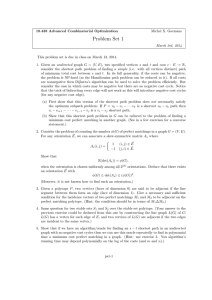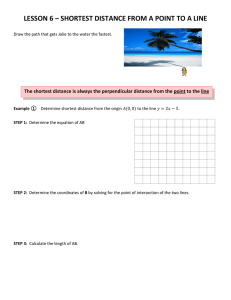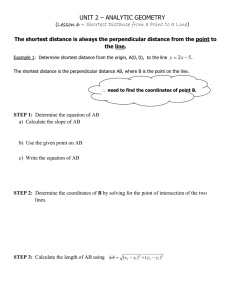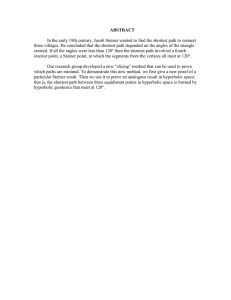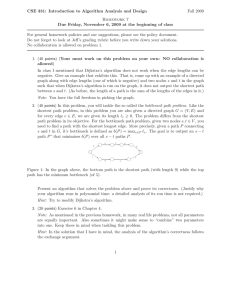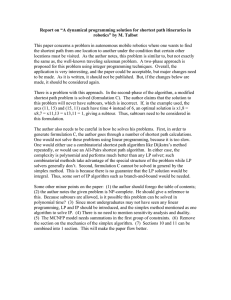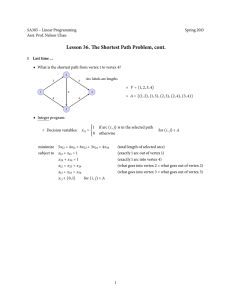Constrained Rerouting in Networks: An Integer Programming
advertisement
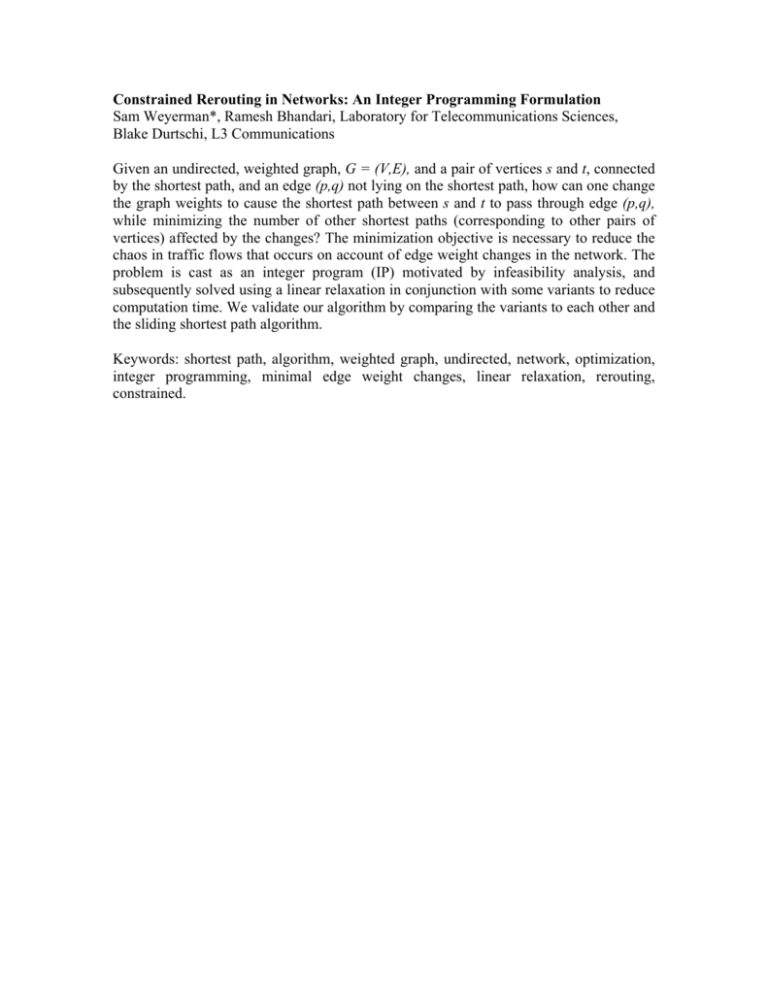
Constrained Rerouting in Networks: An Integer Programming Formulation Sam Weyerman*, Ramesh Bhandari, Laboratory for Telecommunications Sciences, Blake Durtschi, L3 Communications Given an undirected, weighted graph, G = (V,E), and a pair of vertices s and t, connected by the shortest path, and an edge (p,q) not lying on the shortest path, how can one change the graph weights to cause the shortest path between s and t to pass through edge (p,q), while minimizing the number of other shortest paths (corresponding to other pairs of vertices) affected by the changes? The minimization objective is necessary to reduce the chaos in traffic flows that occurs on account of edge weight changes in the network. The problem is cast as an integer program (IP) motivated by infeasibility analysis, and subsequently solved using a linear relaxation in conjunction with some variants to reduce computation time. We validate our algorithm by comparing the variants to each other and the sliding shortest path algorithm. Keywords: shortest path, algorithm, weighted graph, undirected, network, optimization, integer programming, minimal edge weight changes, linear relaxation, rerouting, constrained.
